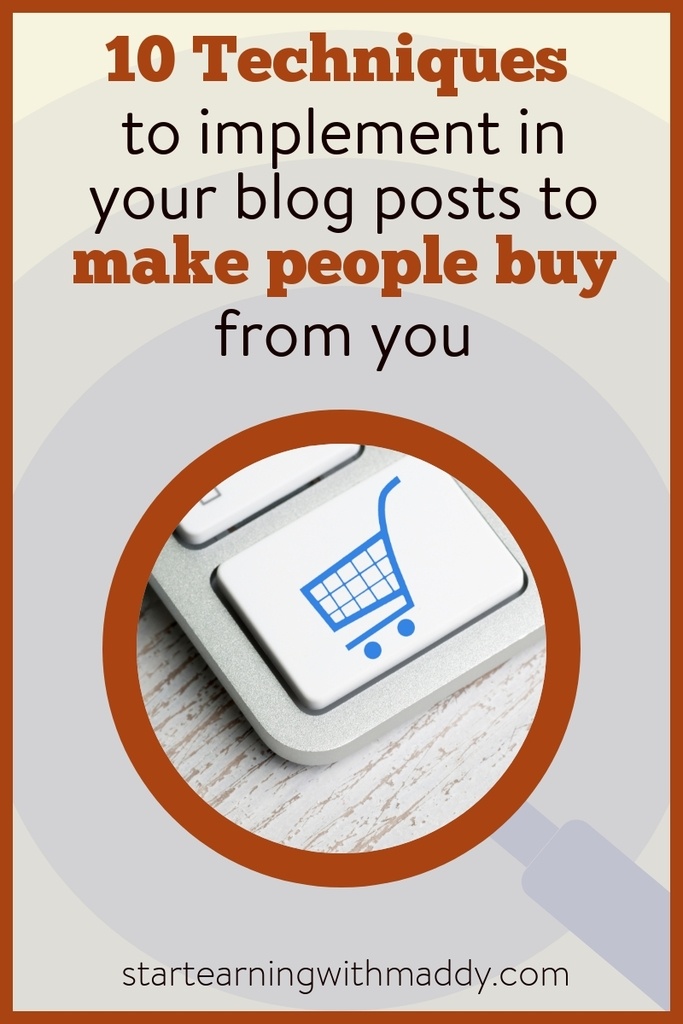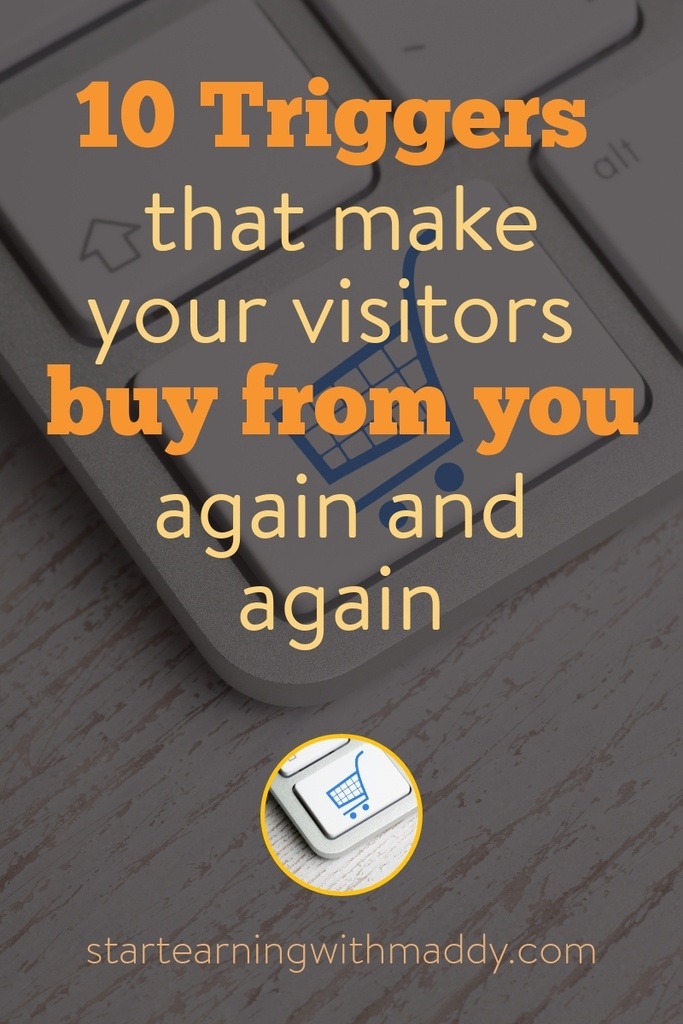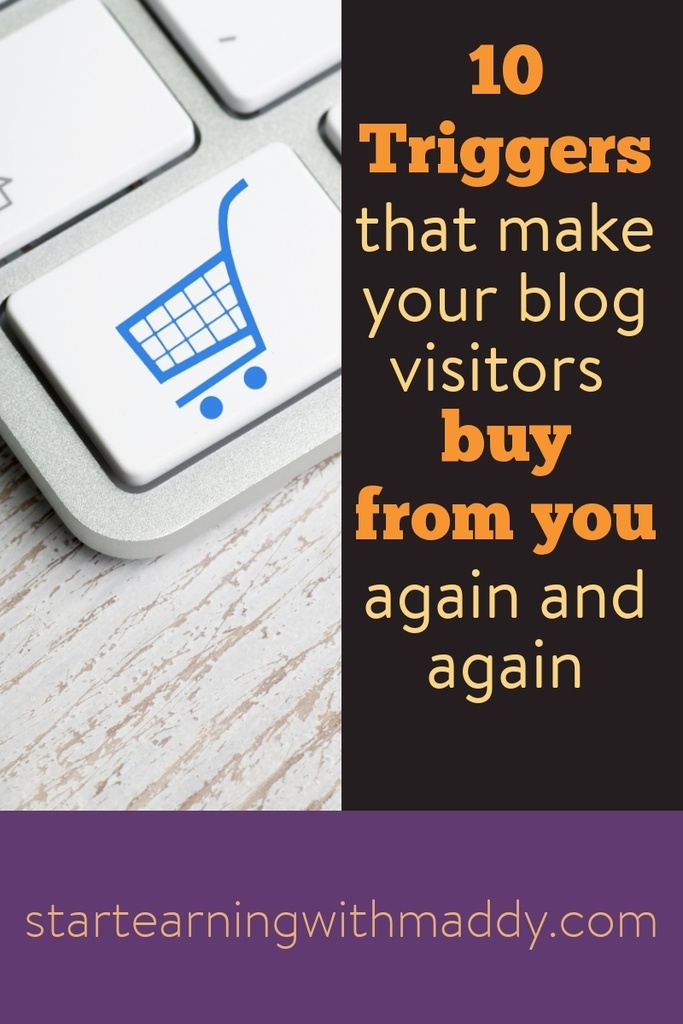10 Buyer Triggers For Serious Internet Marketers To Improve Sales

If you hope to improve your sales and profits, you should learn a little bit about the human psychology. The mind is the root of every action and reaction in our world. What we do physically is merely the manifestation of what’s going on in our mind. Our actions are extensions of our thoughts. Even when our actions seem to go against our thoughts, they are in fact driven by our subconscious compulsions. Every action and reaction can be traced back to the human psyche. (Recommended Read: How to sell more with less traffic)
Customers, consumers or clients are no different. People decide under the influence of psychological triggers. These psychological triggers can be influenced by many factors.
While there are dozens of elements that can influence the psyche of an individual, here are the ten most important psychological triggers that convert leads into customers.
- The Quest for Pleasure
- The Pursuit of New and Original
- New clothes
- new shoes
- a new car
- a new house
- a new phone
- a new laptop
- a new set of speakers
- or it could be a new set of wine glasses….
- The Quintessential Reason
- What’s the Story?
- Simplicity
- Following / Popularity / Brand Value / Fandom
- Enticement or Intrigue
- Fear of Loss / Fear of Missing Out
- Verifiable Proof
- Fuss / Hype / Press / Controversy
Every human being is drawn towards pleasure and is averse to pain. No one wants to suffer and everyone wants to have a good time. This desire to be pleasured drives people to buy specific products.
As a company, marketing professional or salesperson, you need to present your product or service in a manner that will help the customer to imagine some form of pleasure.
Once you identify the exact the form of pleasure your audience wants, strategize your marketing campaign accordingly. Smart marketers know how to package their product or service and how to convey the message.
People love new stuff. It doesn’t matter what the product is.
Studies have proven that exposure or anticipation of new items increases the secretion of dopamine in the human brain. Hence, it is a neurological trigger.
Let us illustrate this reality using two simple examples.
Every smartphone maker and automaker in the world keeps releasing new variants of their existing models. Other than the rare instance, there is hardly any significant change or improvement in the subsequent variants. You can consider everything from an iPhone to a Galaxy, a Volkswagen to a Toyota. The existing models are repackaged, some specifications are tweaked, some features are upgraded just marginally and there you have a newly manufactured phone or car. This new original product builds anticipation and is satiating for many people.
Every product in the world has multiple features and at least one benefit. Else, the product should not exist. The features and benefits will do their job to capture attention and will trigger some interest in the people but they are not enough to drive the sales.
You can talk as much as you want about the benefits or features and yet you may fail to convert a lead into a customer.
The reality is simple.
The lead is waiting for the quintessential reason. Many marketers and salespeople have been misled to believe that people need many reasons to buy something. It is absolutely not true. Most people don’t even know all the features of products that they have purchased.
The average consumer is not that savvy or interested. The average consumer has a lot of stuff on their plate. They just need one good reason.
Let us talk about organic food or green tea. Does any average consumer know all the differences between organic food and inorganic food? Does an average consumer know exactly the difference between green tea and what has been called tea for ages? Even those who drink tea everyday don’t know the difference between normal tea and green tea or black tea and yellow tea. People have one good reason to opt for organic food or green tea and that has been enough to promote these two products across the world.
The consumers are not interested in the story of a company.
They don’t want to hear how a product has come into being, definitely not when the product is yet to become a bestseller.
The consumers want to hear a story that will trigger their emotions.
This is the story that marketers or advertisers must conceive.
Many years ago when television was not as popular and technology was not what it is today, Volkswagen came out with an advertisement. It was just an image of identical houses in a nondescript but beautiful suburban neighborhood with lawns and paved driveways. Every house had a van parked outside, which was the Volkswagen station wagon. The image was captivating for sure but it was the few lines accompanying the image that told a great story. It triggered an intellectual response. Needless to say Volkswagen did have an amazing response.
You may be aware of the commercials of the sixties through the eighties and even the nineties. You are certainly aware of the stories various commercials narrate during Super Bowl and other major events. The objective is simple: to trigger an emotional response so there is an immediate connection with the audience.
Consumers love sophistry, complex craftsmanship, complicated mechanisms and wondrous technology but they don’t want to deal with those firsthand. They want these elements inside the product which must be simple enough for them to use. Everyone uses a remote transponder key but not many want to know how push button ignition work or what the transponder chip actually is.
Any product that appears to be complicated or difficult to use will not influence a lead to become a customer.
Every product that is utterly simple to use and has some significant utility will always influence a lead to at least consider buying. If the customer has to make an effort to understand a product or service, if a lead imagines using the product or service to be tiresome or requiring a great deal of labor, then the whole campaign will be a definite failure.
This can easily be the most important psychological trigger but the reason we mention it at sixth is because a company needs to master the first five to become a brand with a worthwhile following.
Popularity of a brand instills credibility. People trust its products or services.
Fandom instills a sense of unity. People come together and feel like a part of a larger group. Human beings are wired to find a common reason to unite. This has happened more gloriously in case of all religions.
Cultivating a loyal or committed following is necessary for every company to sustain its success. There is a reason why millions of people around the world line up to grab the latest iPhone. In addition to the pursuit of novelty and the quest for pleasure, it is the sense of being a part of the larger group of iPhone users and the fandom that drives the people to put in the effort, also their money.
We are drawn to what we know or have experienced. We like eating our favorite foods, we cook the recipes we have mastered and take pride in the creation, we support our favorite teams and expect the best from them, we like the comfort of being with our friends and also seek job security.
There is a part of us that wants predictability, certainty and continuity. Then there is a part of the mind that craves surprises, wants to explore the unknown, is waiting to be enticed or intrigued. This curious part of our mind can be easily used by a company to generate traction for its product or service.
This is not the same as the pursuit of something new or original. It is the longing for something different.
While we go about our lives in the most mundane and obviously expected manner, we want to try out something new or have a different experience. Any product or service worth its cost that has this intrigue or enticement will easily convert leads into customers.
This is a psychological trigger but has been diluted in recent years for being used, overused and even abused by most companies.
Fear of loss has always been a driving force and has led to overnight bestsellers but it works only when used sparingly. Companies keep blasting their leads with emails, highlighting limited time specials again and again. If the lead knows that you would keep repeating the same offer or similar promotions time and again, then it doesn’t really create any fear of loss.
Smartly timed, placed and messaged campaigning that genuinely instills a fear of loss will always convert a lead into a customer. Fear of missing out needs to be well substantiated. It cannot be a random claim. Companies need to provide enough proof that the item has already been bagged by many like the lead being targeted.
A newly launched product or a new service cannot really use fear of missing out because the leads don’t even know what they would be missing out. That is unless, the product or service is a follow up of what is already out there and the leads know the benefits, effectively the pleasure.
Whatever it is that you promote, a lead is likely to believe your claims if there is verifiable proof. Products in action, services being endorsed by people, independent studies or reviews that substantiate the claims and any kind of proof that is verifiable will always instill the trust a lead needs to make the final decision.
As long as there is an iota of doubt over the functionality or utility, durability or reasonability of a product or service, a lead will not take the plunge. The verifiable proof can be something as obvious as social media following or mass scale endorsement as evident in sales.
Press or media has one of the most influential psychological impacts. When something gets highlighted by the press, people pay attention.
When there is a lot of fuss or hype surrounding a launch or about a product, service or company, there is an urge to check it out. Even when there is some kind of controversy, it helps in publicizing the product or service. It is not true that there is no bad publicity but it is obviously true that hype or fuss and any kind of media attention are psychological triggers.
If you found this blog post helpful, share it in Pinterest so that your friends can benefit from it too. 🙂




